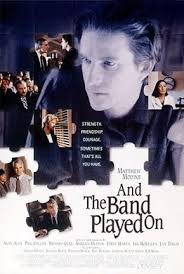VIDEO: Take That For Data
Yes, I know this is a few days old, and yes I know the 'Take That for Data' meme has probably already flamed out from your Twitter feed, but there still may be someone out there who missed Memphis Grizzlies coach David Fizdale's epic rant following a playoff loss to the San Antonio Spurs last week.
Tiny bit of backstory to set this up.
In the game of interest, (which the Spurs won), the Spurs were granted a massive advantage in free throw attempts - with one Spurs player Kawhi Leonard shooting 19 free throws himself, more than the entire Memphis team. After the game Coach Fizdale reflects on the loss, and the officiating in an already classic 2:45 minute rant.
Check the video below, and make sure you make it to the end, (email and RSS subscribers click through), then some comments from me about why this was a really interesting take, (that have nothing to do with basketball).
Not one but two great meme lines in the rant!
But the walk off line, 'Take That for Data' is the one that stuck with me. Mainly because in the same video where Fizdale asserts 'I'm not a numbers' guy, he proceeds to rattle off 12 different statistics from the game - data points that strengthen his argument that the game was poorly officiated and that disadvantaged his team.
Why does this matter at all to anyone except hard core NBA fans?
Because Fizdale in his little rant makes plain the challenge and the tension that often arises in organizations and with leaders when they are pressed to take a more data driven approach to business/HR/talent when they are not naturally inclined to do so.
Don't tell me this is all about the data, then make decisions or drive toward outcomes that are incongruent with the data itself.
Or said differently, if you are going to be the hero in your organization that will push the 'data' agenda, then be prepared to have your data be called out and your conclusions challenged when others have a shot at interpreting the data as well.
Take that for data.
Have a great week!

 Steve
Steve



